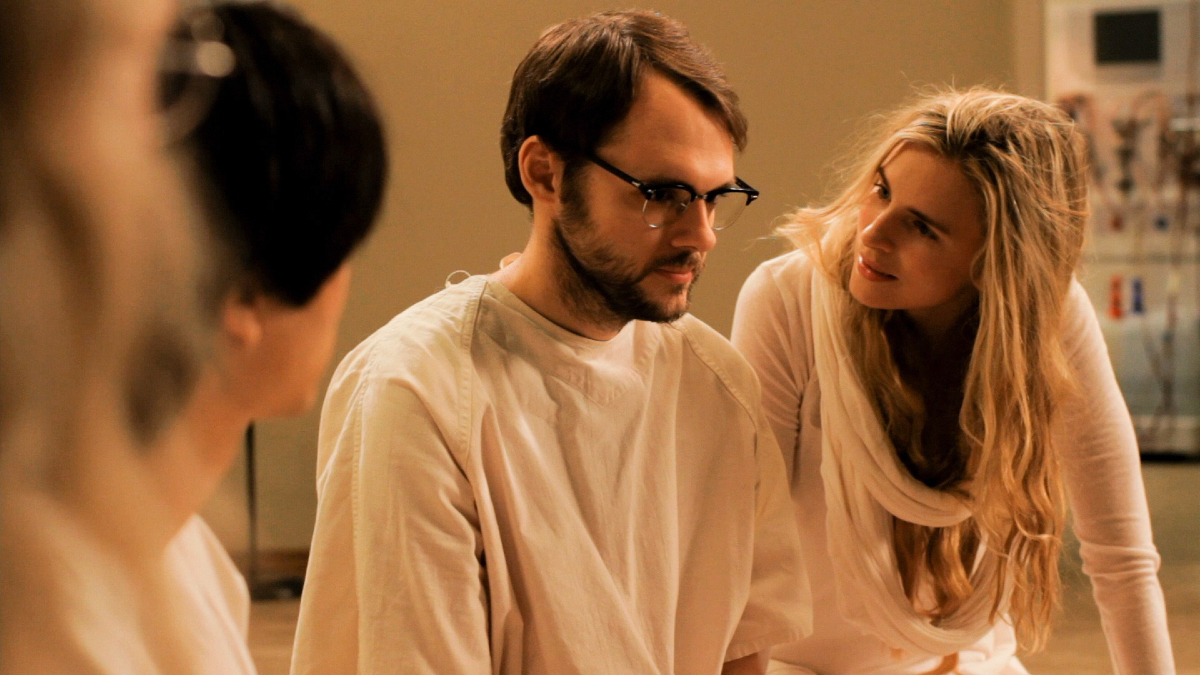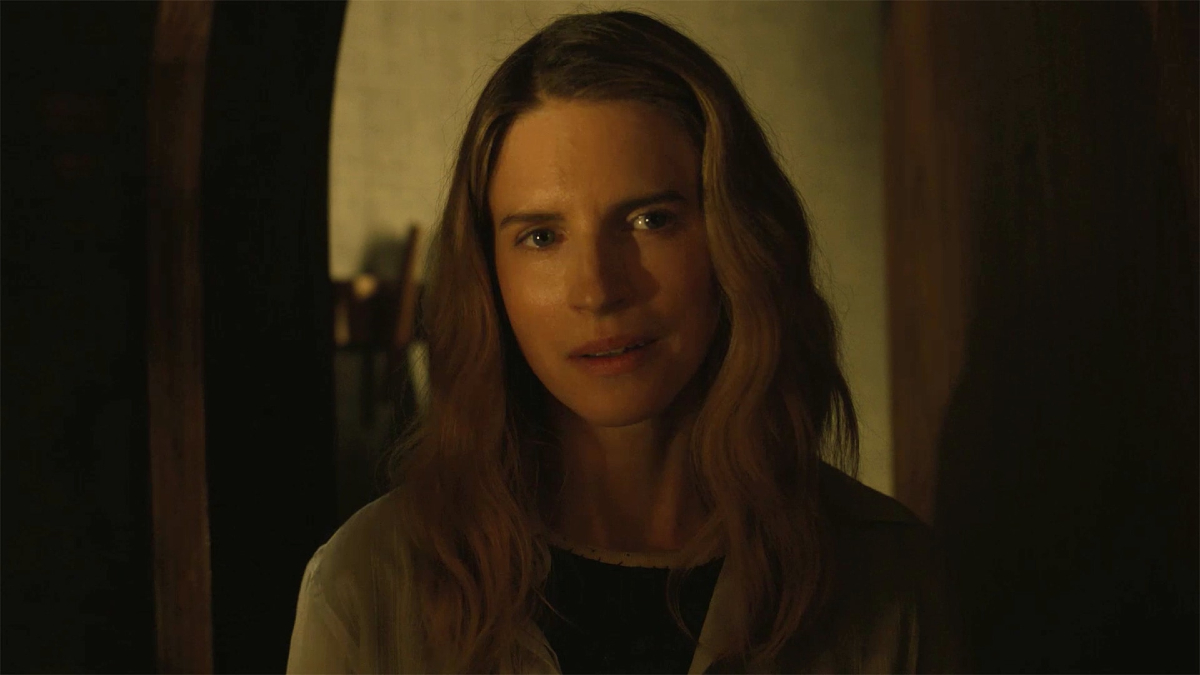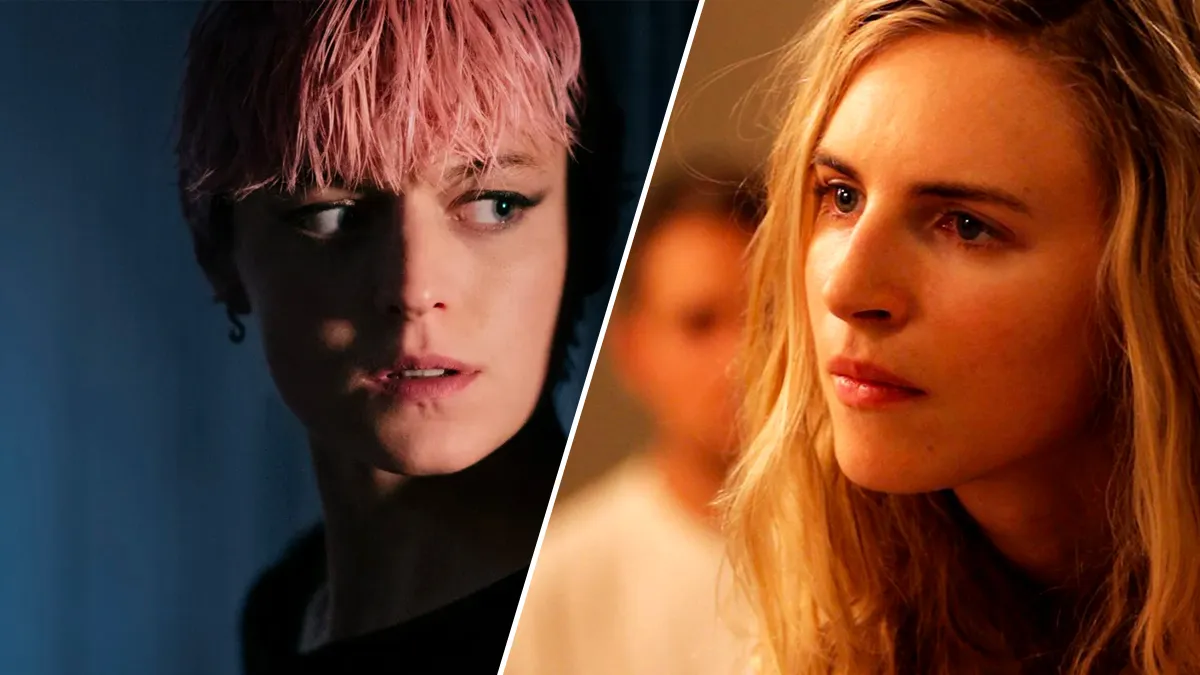If you’re captivated by A Murder at the End of the World, the new FX / Hulu series about an amateur sleuth investigating a possible murder at a tech billionaire’s remote Icelandic retreat, there’s more where that came from. Where, specifically, is the minds of co-creators Brit Marling and Zal Batmanglij, whose first feature film collaboration, Sound of My Voice, has become even more of a must-see in the years since its release.
Released in 2011, Sound of My Voice is a lo-fi indie thriller about Peter and Lorna (Christopher Denham and Nicole Vicius), aspiring documentarians who decide to expose an enigmatic local cult leader named Maggie (played by Marling) as a con-artist. Maggie claims to be a traveler from the near future, on a mission to recruit followers to save humanity from destroying itself. As Peter and Lorna become increasingly immersed in the cult, their beliefs—and their relationship—are challenged. Sound of My Voice is riveting and intoxicating, with a breathtaking ending I’m still thinking about more than a decade later.
Sound of My Voice is exactly the kind of movie you should approach knowing as little as possible. The experience of watching it for the first time, especially with other people, is exceptional. I also don’t recommend watching the trailer; it doesn’t include any spoilers, but if you’ve made it this far without knowing anything about Sound of My Voice, I recommend preserving the mystery. (Sound of My Voice isn’t streaming anywhere, which seems like a major oversight, but you can—and should—rent it on Amazon or Apple.)
Marling and Batmanglij have been collaborating since they met at Georgetown University in 2005. They co-wrote Sound of My Voice, Batmanglij’s feature directorial debut, as well as 2013’s The East and the tragically short-lived Netflix series The OA, both of which also star Marling. It’s impossible to watch Marling perform and not be enthralled by her. I’ve been captivated from the moment I saw Sound of My Voice at the 2011 SXSW Film Festival, and that affection has only grown with each performance, both in her work with Batmanglij and her collaborations with Mike Cahill (Another Earth and I Origins). There is a tranquil quality to her presence that remains unshakable, even when Marling’s characters experience or recall horrible traumas. Her delivery is measured and soft in a way that feels like it comes from a place of painfully earned wisdom, and not a desire to appease or compromise. Marling’s characters often read as having already been transformed; in a subversion of narrative tradition, it’s the people (willingly) caught in her orbit who are often in the process of undergoing seismic conflict that necessitates change. They are on a hero’s journey that Marling has already completed.

In many ways, Sound of My Voice is the Rosetta stone in Marling and Batmanglij’s filmography. Not only is it the seed from which all of Marling’s characters seem to have sprouted, but it’s also where many of the themes and elements present in their other collaborations first appear. In The East, Marling plays Jane, an agent for a private intelligence firm who infiltrates a collective of environmental activists. As Marling digs deeper into the collective, she begins questioning her own beliefs and ideals. In The OA, Marling is Prairie, a young blind woman who returns seven years after her mysterious disappearance, suddenly able to see. Prairie remains secretive about what happened during that time, choosing only to share her story with a small group of strangers she’s selected to help her rescue the people she left behind—by opening a portal to another dimension.
Somewhat less similar, for now, is A Murder at the End of the World, in which Marling plays Lee, the enigmatic wife of tech billionaire Andy Ronson, played by Clive Owen. Lee is more idealistic, empathic, and socially conscious than her husband, whose investments in advanced technology and concerns about the environment extend about as far as they can for someone with that much wealth, even one with progressive values and concerns (which is to say, somewhat superficially). At their high-tech retreat in Iceland, Lee and Andy invite a seemingly disparate group of innovative thinkers and creators comprised of activists, a doctor / astronaut, a filmmaker, and an AI entrepreneur. Amateur sleuth Darby (Emma Corrin) is the seeming outlier, though her presence may be connected to another guest: a hacker named Bill with whom Darby investigated the unsolved, possibly connected murders of several women across the U.S.

The narrative similarities between Sound of My Voice and Marling and Batmanglij’s subsequent collaborations are fairly obvious, but it’s the smaller details—Marling’s cult leader in Sound shares an elaborate handshake with her followers, not unlike the “movements” that Prairie shares with her cohort in The OA—and the common themes that make this combined filmography so profound. Much of their work is concerned with collectivism and the notion that people can accomplish meaningful, transformative change, not by overcoming their individual differences, but by emphasizing shared experience. The protagonists of Sound of My Voice are asked to reject reasonable doubt for the sake of working toward a better future, together. In A Murder at the End of the World, Marling and Batmanglij once again bring together a disparate group of individuals for the ostensible purpose of collective action, this time observing the duality of artificial intelligence; its capacity to be used as either a tool for progress or a weapon in our destruction.
Only four episodes of A Murder at the End of the World have aired at the time of this writing, making it difficult to ultimately assess where the series fits into Marling and Batmanglij’s filmography. But if Sound of My Voice is any indication, the conclusion will be breathtaking.
(featured image: FX / Hulu / Searchlight Pictures)










Published: Nov 30, 2023 04:37 pm